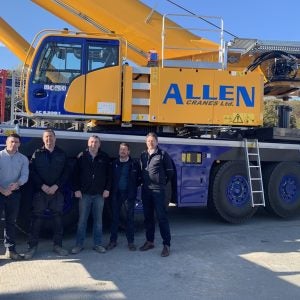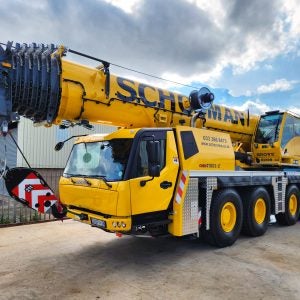I was one of those who voted against the move. It was a contentious and divisive vote, and I know many of our UK readers will disagree with me on this point.
The history of the British crane industry, as documented in Cranes Today for more than 40 years, illustrates some of the reasons voters here distrust the EU. The magazine was launched in 1973, the same year that the country joined the European Economic Community, the predecessor to the EU.
At its launch, and for the next decade, Cranes Today's coverage was dominated by news from UK crane manufacturers. Throughout the 1970s and 80s, these companies slowly declined. Today, there are no major manufacturers of construction cranes based in the UK.
For voters in England's industrial regions, the decline of heavy manufacturing, and the coal and steel industries that supported it, hit hard. Ever since the Thatcher government in the 1980s, these voters' lives and wellbeing have been ignored by politicians on all sides. It's no wonder they're angry.
But I think they confuse correlation with causation. While many UK industries have declined during our membership of the EU, I believe this is more to do with a worldwide trend towards globalisation and financialisation.
The number of manufacturers of large construction cranes has declined around the world. As cranes became bigger and more highly specialised, so did crane builders.
Only a few companies around the world could achieve the scale and global supply chains needed to compete. That the UK economy focused on London bankers rather than Grantham engineers is the fault of Thatcher and Blair, not Kohl and Mitterand.
The EU threw the UK economy a lifeline when our own politicians failed us. British crane experts work around the world, helped both by this country's industrial heritage, and by free movement of labour. Crane firms buy equipment that is of the same quality as their counterparts in Germany, and sell it secondhand across the EU.
This year, through its membership of the European trade association ESTA, the UK industry has played a leading role in shaping the planned European Crane Operators' Licence, which will help crane owners recruit sorely needed skilled staff. The FEM successfully lobbied the European Commission to ensure new emissions regulations don't slow development and delivery of new cranes.
Over the next few years, the UK government will negotiate our withdrawal from the EU. I hope they will manage that better than they have our domestic economy.
Will North editor
wnorth@cranestodaymagazine.com






